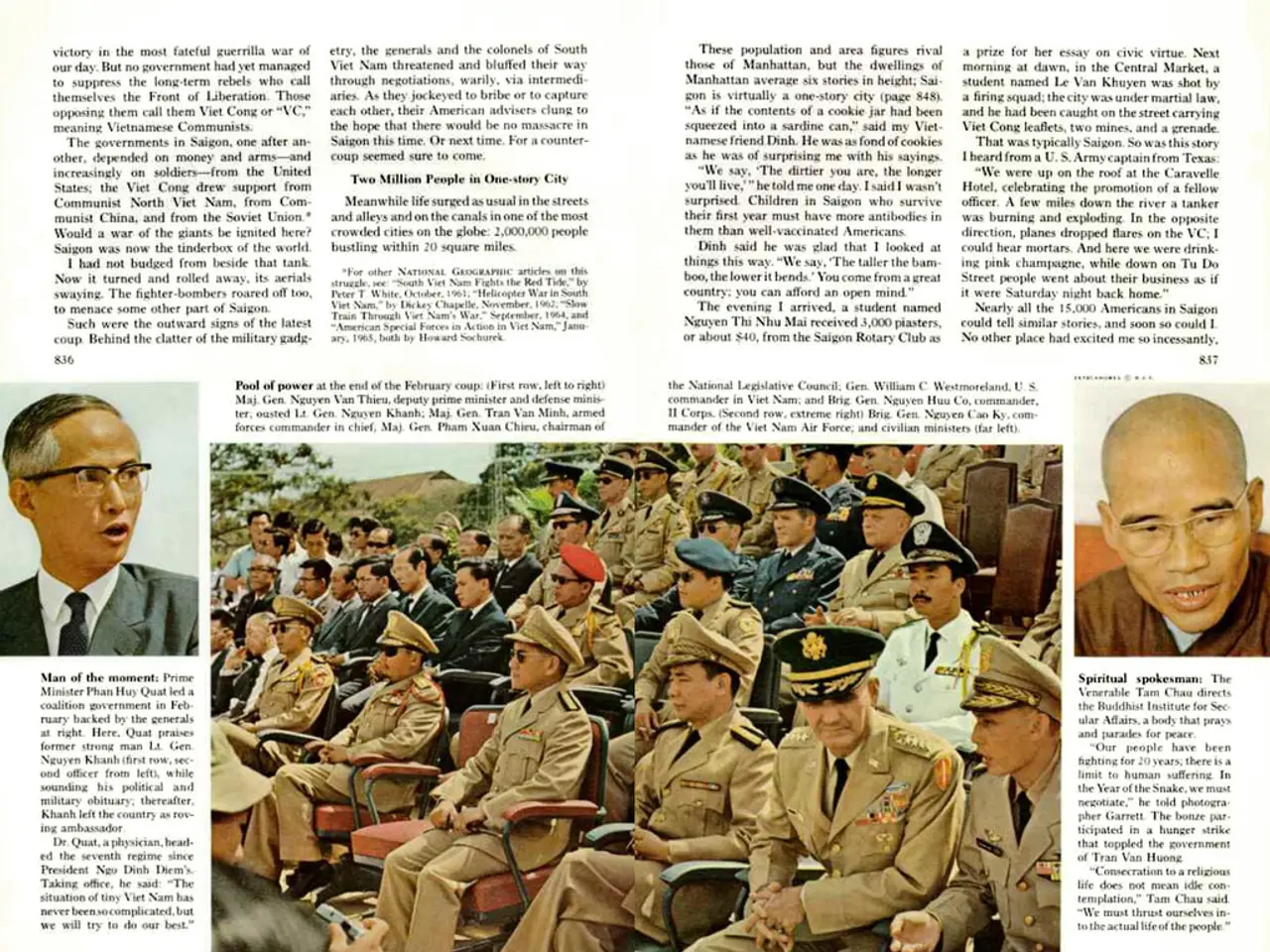Is the Pursuit of Objectivity Still Relevant?
In the world of journalism, the concept of objectivity has long been a cornerstone, idealized as the "view from nowhere." However, recent years have seen a growing debate about the value and practicality of this ethical standard.
Walter Lippmann, an American journalist, was one of the early champions of objectivity, recognizing the dangers of propaganda masquerading as news. This perspective was embraced by many, leading to the adoption of objectivity in journalism in the early 20th century as a response to "yellow journalism."
However, critics argue that objectivity as an ethical standard is both impossible and harmful. Candis Callison and Mary Lynn Young, authors of "Reckoning: Journalism's Limits and Possibilities," made this argument in a 2020 CBC interview. Jay Rosen, a NYU journalism professor, echoed this sentiment in 2010, stating that the view from nowhere has "unearned authority" in the American press and encourages journalists to develop bad habits.
The debate reached a new level in 2020, with journalists from various outlets, including the New York Times, Washington Post, and Los Angeles Times, lodging complaints about overcorrective both-sides-ism in their coverage of George Floyd's killing and subsequent mass protests against racist police violence. This was further exemplified when the New York Times staff protested the decision to run an op-ed from Sen. Tom Cotton urging the US government to use military force against Black Lives Matter protesters, with employees tweeting, "Running this puts Black NYTimes staff in danger."
The call for change has come from within the industry as well. Wesley Lowery, a former Washington Post reporter, published an op-ed challenging the "gaze of white editors" and calling out the industry's failure to recruit and retain journalists of color. Emilio Garcia-Ruiz, editor in chief of the San Francisco Chronicle, and younger journalists believe that objectivity has got to go.
In response to these criticisms, some news outlets have started to reevaluate their approach. Axios, for example, has emphasized the importance of acknowledging biases and taking steps to counteract them. Tony Cavin, NPR standards editor, argues that journalistic principles used to set the news agenda need more people from diverse backgrounds to decide how to use them.
The Solutions Journalism Network, co-founded by David Bornstein, offers an alternative approach. Solutions journalism isn't just looking for good news to cover but examines how people are responding to problems and reviews the evidence to see whether the response is effective.
However, the debate is far from over. Stephen J.A. Ward, a lecturer in ethics at the University of British Columbia and the author of several books on media ethics, questions the value journalists place on telling both sides of a story. Martin Baron, retired executive editor of the Washington Post, has yet to publicly comment on his current stance on debates about objectivity in journalism.
The lack of diversity in the journalism industry is another concern. A 2022 Pew survey found that only 6% of journalists are Black, 8% are Hispanic, and 3% are Asian. Kathleen Culver, director of the UW-Madison School of Journalism and Mass Communication, is studying how college papers' coverage of protests differs from that of traditional mainstream media outlets.
In the midst of these debates, incidents like the case of Felicia Sonmez, who sued the Washington Post in part for preventing her from covering stories about sexual assault after she revealed she was an assault survivor, highlight the need for change. As the landscape of journalism continues to evolve, it is clear that the concept of objectivity, as it has been traditionally understood, is under scrutiny.
Read also:
- Catastrophe at a U.S. Steel facility in Pennsylvania results in the loss of two lives. crucial details unveiled
- Manipulating Sympathy: Exploiting Victimhood for Personal Gain
- Prices remain a concern for the Germans
- Auto Industry Updates: Geotab, C2A, Deloitte, NOVOSENSE, Soracom, and Panasonic in Focus




